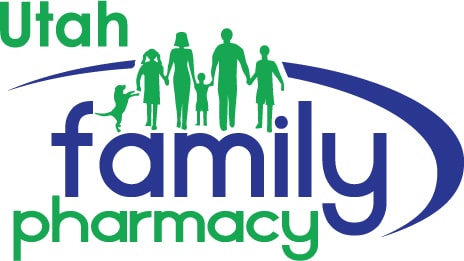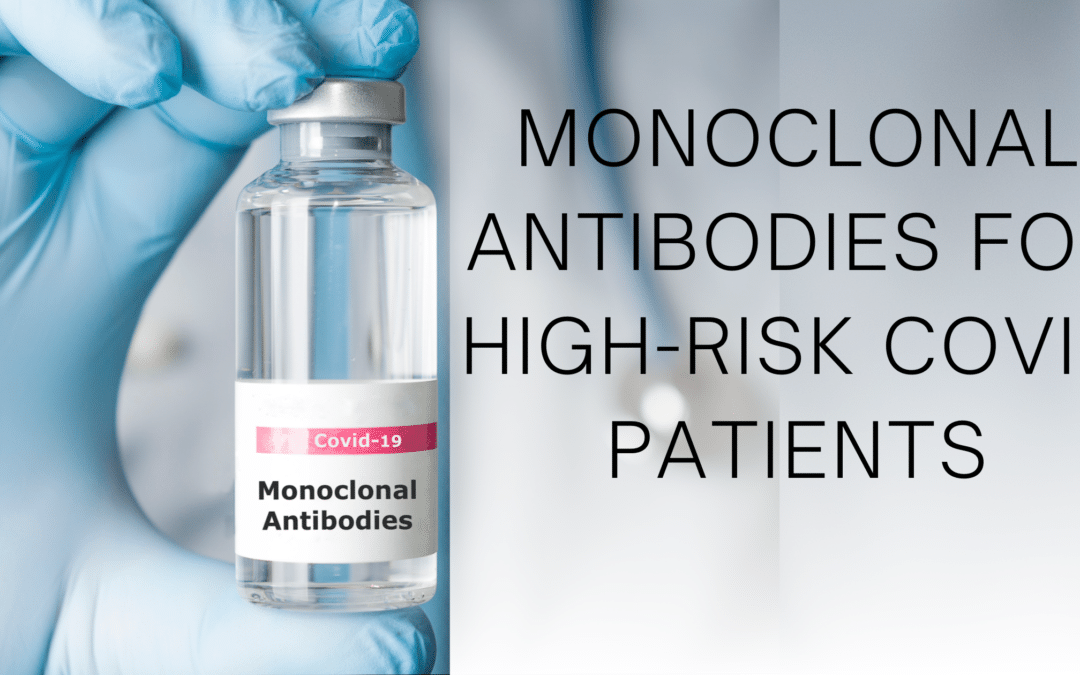When the first outbreak of the disease began, there was no treatment specific to COVID-19
available. Meanwhile, in the intervening time, there has been a change in the treatment. FDA
has granted an Emergency Use Authorization (EUA) to various monoclonal antibodies as a
treatment for COVID-19.
As said by most doctors, the initial eight months of the epidemic, it was pretty challenging to determine what to do by a physician for patients who had been tested positive for COVID-19 and did not require hospitalization other than a wait-and-see method. However, if a patient’s symptoms were to become severe, they could at that moment take care of themselves and treat the issues with oxygen therapy and other techniques. But the ideal situation is to stop severe symptoms from ever arising from the beginning.
By using monoclonal antibodies, doctors can prevent severe symptoms from arising in
people at high risk. In the last few months, recently, the FDA has extended the treatment of
monoclonal antigen therapy to preventive use for those at risk of developing the disease due
to known exposure to the virus.
That decision was based on the outcomes of a substantial clinical trial which found that the
antibodies slowed down symptoms in family members of individuals who had recently had a
positive test. The FDA stated that the treatment is not a replacement for vaccination but a
small leap towards finding a concrete solution.
We at Utah Family Pharmacy have designed this blog post to address some of the
fundamental questions that anyone might ask regarding monoclonal antibodies.
What Is A Monoclonal Antibody?
Your body produces antibodies to fight off infection. However, it is possible that your body is not equipped with antibodies that can identify a new (or novel) virus, such as SARS-CoV-2, the COVID-19-causing virus. Monoclonal antibodies are produced in a lab to fight specific infections–in this instance, SARS-CoV-2. These are administered to patients in a direct infusion. This is because Monoclonal antibodies therapy can aid patients at risk of having a severe illness or needing to remain in hospital.
Monoclonal antibodies treatments for COVID-19 are different from the providing COVID-19
vaccine. As the vaccine activates the body’s natural immune response; however, it can take several weeks to build up sufficient antibodies to prevent certain types of infections. Various
vaccines for COVID-19 require two doses, which means your body will build its immune system against the disease. In the case of Monoclonal antibodies treatments, if you have the virus, they provide your body with the antibodies which can safeguard it from infection.
How Can You Get Monoclonal antibodies?
Anyone who has experienced symptoms lasting less than ten days must be recommended
for treatment by their health care providers and directed to infusion centres. If you don’t have a medical professional, contact the COVID Monoclonal Antibodies Call centre for information on who to talk to about your symptoms and the treatment.
It is accessible for any person for antibodies. However, there might be treatment charges. If you don’t have insurance, inquire with the hospital if there will be any cost.
What If I Don’t Qualify For Monoclonal Antibody Treatment?
Your doctor may determine whether you’re eligible or not eligible for treatment with
Monoclonal antibodies. There are a myriad of reasons for this. There is a chance that you
don’t satisfy all qualifications or suffer from an illness that makes you unfit to receive
Monoclonal antibodies treatment.
Whatever the reason, keep fighting. There is always a second alternative. It is possible to take part in a Clinical trial to test COVID-19. Participants participating in these clinical trials might be treated with new drugs or treatments, allowing researchers to assess how the treatments are working. The thousands of participants who participate in clinical trials have assisted in developing new COVID-19 therapies, and thousands more are required to ensure that treatments work for everyone regardless of gender, age or race and ethnicity.
Check with your physician to determine if you’re suitable for a clinical study to treat COVID-19.
To find out more regarding clinical research, please visit our website, You Can Help Combat COVID. You can also contact us at Utah Family Pharmacy.
What Can I Expect From Monoclonal Treatment?
Monoclonal antibodies treatments are performed at an infusion centre since the therapy is administered via an infusion through an intravenous (IV) injection. Based on the type of Monoclonal antibodies treatment you choose, the entire process can take approximately 2 to 3 hours.
The first step is to perform screening, and then they begin an IV that delivers the Monoclonal
antibodies into your body within less than an hour. After that process, the medical team will
require you to remain in the centre for an additional hour to ensure you’re not suffering from any allergic reactions or adverse consequences. The chances of having these reactions are shallow; however, the medical staff has to monitor you for this hour, and then you’ll be allowed to return to your home. It is vital to realize that even when you start improving, you might continue to spread the virus for some time. Therefore, it is essential to remain in a safe place (be completely alone) until these events occur:
1. Minimum 10-days have passed from your first signs of COVID-19.
2. There hasn’t been a fever for a minimum of 24 hours without taking any medication
that can reduce the severity of your rage.
3. Other symptoms of COVID-19 are improving.
Note: Follow your doctor’s healthcare advice. Your health history could necessitate you to
fulfil additional requirements and if you begin feeling ill, take the initiative to seek medical
advice.
Can Antibody Treatment Make Me Sick?
Antibody treatments don’t have the SARS-CoV-2 live virus, so there’s no chance of getting
COVID-19 after Monoclonal antibodies treatment. But, treatment with antibodies can result in side effects.
● Allergic reactions can develop in the course of and following an infusion of antibodies. Inform your doctor immediately if you notice one of these signs or signs of an allergic reaction such as fever, chills, nausea, headaches or shortness of breath, low blood pressure, swelling of your face, lips and throat, rash, which may include
itching, hives, muscles aches, and/or dizziness.
● Infusions of any medication can cause a brief bout of bleeding, pain, bruises in the face, tenderness, swelling, and even infection of the infusion area.
This is not the only list of possible side effects associated with an antibody treatment. In the
event of unexpected and severe side effects, they could occur. The most likely risks
associated with antibody treatment include:
● It can hinder the body’s ability to fight against a possible infection caused by SARS-
CoV-2.
● It could lower your body’s immunity to a vaccine against SARS-CoV-2.
Monoclonal antibodies treatments for COVID-19 and other treatments approved to be used
in emergencies from the U.S. FDA are being researched. The possibility is that you aren’t
aware of the full extent of risk. As scientists continue to investigate the virus and how
Monoclonal antibodies treatments affect it, we’ll be able to learn more about the potential
dangers. If you have any concerns you’re interested in, talk to your physician.
Some Interesting Figures On Monoclonal Antibodies Treatment
The monoclonal antibodies, including imdevi Monoclonal antibodies and casirivi monoclonal
antibodies, were granted emergency use authorization (EUA) through the U.S. FDA. The
study involved nearly 1400 patients at Mayo Clinic in the U.S., including 696 treated with the combination of drugs between December 2020 and April 1st. A similar cohort was not
treated. The health stats of the patients were assessed at 14-21 and 28 days following
treatment. At every point of the hospitalization, rates were lower in the treatment group.
● On the 14th day, 1.3 per cent of the patients were admitted to the hospital, in contrast
to 3.3 per cent of the patients who had not received treatment, as the researchers
reported.● Day 21 was the only day that 1.3 per cent of patients were admitted to the hospital,
compared to 4.2 per cent of patients who were not treated, according to the report.
● The study showed that, at the time of 28 days, 1.6 per cent of patients were admitted
to hospitals compared to 4.8 per cent of those who were not treated.
● The result was a 60%-70 per cent reduction in hospitalization in patients treated as
per the study. In the hospitalised case, the proportions for ICU admission and death
were not high, as they discovered.
This real-world study suggests patients who are at risk due to various comorbidities develop
mild or moderate cases of COVID-19, this combination of monoclonal shot gives the
possibility of recovering without hospitalization. Also, they recuperate at home safely, according to Raymond Razonable, an infectious diseases specialist at Mayo Clinic, andsenior researcher for the research.
An earlier study by Mayo Clinic researchers suggested the bamlanivimab treatment
decreased hospitalizations for those at high risk by 40 to 60 per cent. The study included
2,335 treatment patients of the Mayo Clinic from November to February 2020.
Compared to 235 patients who were not treated and 2,335 patients who were not treated,
the ICU admission rates and mortality rates were also lower when monoclonal antibodies
were administered.
In April, the researchers also noted that the FDA revoked the EUA for bamlanivimab as a
single agent and has now endorsed the use of monoclonal combination antibodies.
As stated by Razonable The conclusion we have reached to date is that monoclonal
antibody is an important alternative to treat the effects of Covid-19 on patients at high risk.
In a Nutshell
At Utah Family Pharmacy, we ensure that every bit of information that reaches you is packed
with all the necessary information that can be useful for you at any point in your life.
Monoclonal antibodies (mAbs) being an immune system laboratory-produced proteins have
a high affinity for their target cell and they have been tested for Ebola virus and respiratory
syncytial virus (RSV).
The treatment differs from convalescent plasma because monoclonal antibodies target
antigen towards a virus or bacteria. With convalescent plasma, there are multiple antibodies
targeting different antigens. The majority of monoclonal antibodies are developed to bind
with the spike protein because they can help prevent viruses from infecting human cells.
Monoclonal antibodies reduce inflammation caused by COVID-19 and can be taken by
people with weakened immune systems, older adults, pregnant ladies, obese people and
people suffering from chronic diseases. Having mABs in combination with other medications
is a good option for prophylactic and treatment settings.


Recent Comments